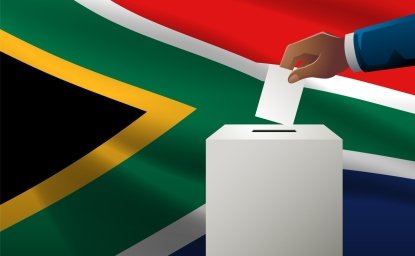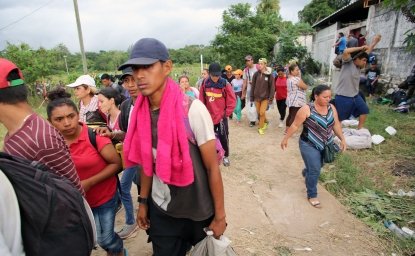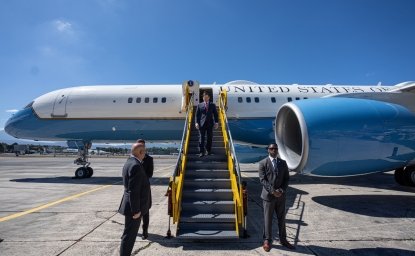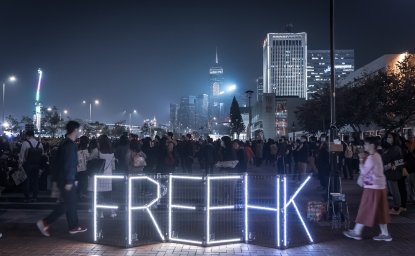Amid Crisis, Rousseff Seeks Closer Ties with U.S.
Paulo Sotero, Director of the Brazil Institute, discusses the impact of the current economic and political crisis on Brazil's foreign policy vis-à-vis the U.S. in an article for the Huffington Post.
Paulo Sotero, Director of the Brazil Institute, discusses the impact of the current economic and political crisis on Brazil's foreign policy vis-à-vis the U.S. in an article for the Huffington Post.
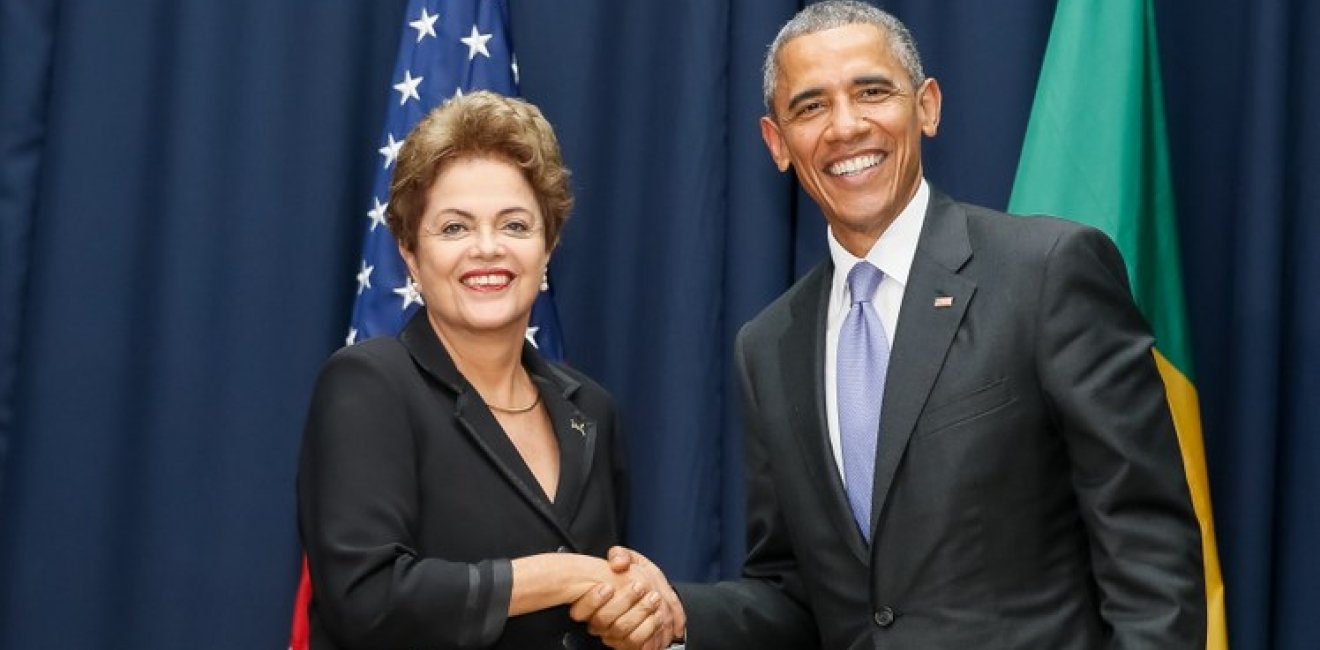
The Huffington Post, 4/17/2015
Confronted by calls for her impeachment in street protests fueled by a deteriorating economy and a deepening investigation on massive corruption at state oil giant Petrobras, a weakened President Dilma Rousseff sees improving relations with the United States as part of the solution to Brazil's and her own mounting challenges.
Following a Saturday April 11 meeting with president Barack Obama at the Summit of the Americas, in Panama, Rousseff said concerns caused by the 2013 revelations of the National Security Agency surveillance activities in Brazil were resolved and confirmed she will visit Washington this year. The announcement of the June 30th gathering at the White House put the Brazil-U.S. dialogue back on track following a period of estrangement that cost the U.S. the loss of a major defense contract and frustrated plans to elevate Brazil-U.S. relations to a new level of engagement.
Praised by Rousseff for his decision to normalize U.S. relations with Cuba, the American leader has scored points by enhancing U.S. ties with its largest regional neighbor at a time when Brazil is experiencing its most severe political and economic crisis in two decades. Rousseff's official visit to the U.S. will not have the frills of the state visit planned for October 2013, which was derailed by the NSA revelations, but was welcomed by the business communities and economic officials in both countries, who hope it will send a positive reassuring message to markets and help to restore investors' confidence in Brazil.
Frustrations accumulated in Washington and Brasilia in the past few years suggest that building a meaningful and productive dialogue between the continent's largest democracies and economies will not be easy. It will depend largely on the ability of the two governments to overcome the bureaucratic approach that guided the dialogue between them in recent years, with little result, and translate into action the interests of Brazilian and American societies in closer ties.
"If someone were to ask my good friend Mauro Vieira what Brazil wants from the U.S., he would say American support of Brazil's candidacy for a permanent seat in the United Nations Security Council," said former U.S. Ambassador to Brazil Thomas A. Shannon, at a recent forum in Washington, referring to Brazil's Foreign Minister. "But if you were to ask a Brazilian on the street, he will say, a visa waiver program in order to travel to the U.S. whenever I would like and without having to pay $BLR 160.00 to get the visa," he explained. "We are approaching a time when our societies will define what our governments need to do in order to improve the relationship," added Shannon, now the Counselor to the State Department and an influential voice on hemispheric issues.
The difficulties and uncertainties Brazil faces at the moment are not seen in Washington as an impediment for a new effort of engagement. "We cannot worry about things that are beyond our control," said a senior official familiar with the internal conversations, referring to possible negative repercussions on bilateral relations of the domestic political troubles the Rousseff government faces. "We believe Brazil will overcome the crisis, and we have no doubt that this is beneficial for us, for the region, and for the world, and we will do our best to help."
Welcoming the Brazilian president to the U.S. is one way of helping. "We know what we want from our relationship with Brazil and we express this to our Brazilian colleagues," added the official.
The list of pending issues is long and well known by both sides. On topics of global relevance, Shannon said the U.S. government recognizes that Brazil has both tradition and capacity to act and does so efficiently when it aligns external actions with its priorities and internal virtues. In the diplomat's view, Brazil projects its international power "by persuasion and example." For this reason, its capacity to convince and influence other countries depends on diplomatic actions anchored in successes achieved at home in areas in which it faces its greatest challenges.
"Brazil does not need to wait, to ask for permission, or for funding, from anyone. The country has the capacity to do this alone. This is its glory and frustration. There are very few countries that can compare to Brazil in this regard," said Shannon. "When Brazil is progressing slowly, it is slow because of it itself, because of the decisions it is not making."
DEMOCRACY AND RULE OF LAW
On the glory side, "Brazilians are determined to redesign their political system and their democracy, in order to guarantee success in the 21st century," he noted. The current crisis has indeed renewed calls for reform of the country's dysfunctional party and electoral laws. Ongoing efforts of reform led by the country's newly empowered vice-president Michel Temer reflect the growing societal pressure for a better and more accountable representation.
This difficult process is being conducted in an atmosphere of political freedom that allows Brazilians to protest in the streets and government's critics to convey their opinion in major media outlets without fear of reprisal. To her credit, Rousseff has been vocal on both the right of the people to express their opinion and on freedom of the press which is not universally supported in her own Workers Party.
New factors are opening space for more engagement between Brazil and the U.S. The Washington-Havana rapprochement inhibits anti-American sentiment that has historically complicated the bilateral dialogue. Not by accident, a growing and louder opposition to political persecution of opposition leaders in neighboring Venezuela has emerged in Brazil. Former President Fernando Henrique Cardoso and Senator Aécio Neves, president of the opposition party PSDB, and other prominent politicians have led the charge, expressing concerns about Brazil's silence in the face of arbitrary arrests of members of the opposition in the neighboring country. The negative impact of the Venezuelan crisis for regional stability and Brazilian business interests is another source of concern publicly expressed by prominent Brazilian leaders. Although Rousseff and the regional leaders at the Summit of the Americas criticized the "national security threat" argument unwisely used by Washington to justify the imposition of sanctions against seven well connected Venezuelans individuals, she is under increasing scrutiny to uphold abroad the principles of freedom and democracy she supports at home. The pressure has forced her government to tone down its support of the Bolivarian government of Nicolás Maduro before the Summit, a development welcomed in Washington.
The domestic crisis in Brazil, on the other hand, has reawakened Brasilia's interest in a better relationship with Washington, as illustrated by Rousseff's desire to visit the U.S. as soon as possible. Federal investigations that exposed the Petrobras scandal and lifted the veil on other suspicious activities involving government procurement have opened a new area of dialogue and cooperation between Brazilian and American officials charged with promoting the rule of law. Along the same lines, initiatives on Open Government, championed by Obama and Rousseff at the Summit of the Americas, are equally promising.
GROWING SPACE FOR COOPERATION
Days after the announcement of Rousseff's visit to Washington, her government submitted to the Brazilian Senate for ratification a Defense Cooperation Agreement the two countries signed in 2010 and reaffirmed with the establishment of the Brazil-US Defense Cooperation Dialogue in 2012. The agreement covers cooperation in areas such as research and development, logistics support, technology security, and the acquisition of defense products and services. It also encourages information exchanges, combined military training and education, joint military exercises, exchange of students and instructors, naval ship visits, and defense related commercial initiatives. A meeting of representatives of both nations' joint chiefs of staff preceded Brasilia's move on the agreement.
Climate change has emerged as an area of deeper engagement between Brazil and the United States. The topic was discussed by Obama and Rousseff in Panama and should gain traction in the bilateral relationship as the two governments develop their proposals for the UN conference scheduled for the end of the year in Paris that will decide on new national commitments to reduction of greenhouse gases emissions and which will replace the 1997 Kyoto Protocol. The historic agreement the U.S. and China reached last year to work together on climate change moved the global debate on the topic beyond the issue of historic responsibility between traditional and emerging power and opened space in Brasilia for a new approach. "The question of climate change related not only to emissions reduction but also to how to approach development questions associated with economic competitiveness and innovation policies," says a senior official from the Brazilian Ministry of the Environment. "The debate is deepening in Brazilian public institutions and companies. The question is not whether we have to grow our economy but how to do it in a way to add quality to the country's output."
This new approach is supported by the economic team led by Minister of Finance Joaquim Levy, who is a key promoter within the government of a more productive and consequential relationship with the United States. Central to Levy's strategy is the understanding that Brazil needs to open its economy and improve productivity in order to overcome the crisis and find the path back to sustainable growth. "State capitalism doesn't work well in democracy,", Levy said the day after massive street protests that shook the country on March 15th, in a direct criticism of shortcomings in Brazil's corporate state model that is at the root of both the economic troubles and the Petrobras scandal. Calls for micro and macroeconomic reforms essential to make Brazil more attractive to domestic and foreign investors are increasingly supported by the business community and is gaining traction within the government. Minister of Development, Industry and Commerce, Armando Monteiro, visited Washington in February to promote an agenda of trade facilitation and regulatory convergence with the U.S. More recently, Eduardo Braga, the minister of Energy, voiced his support for a reexamination of the regulatory framework adopted for the development of the so called "pre-salt" oil reserves, which mandates a weakened Petrobras to operate all new offshore oil fields and imposes national content requirements that increase costs and alienate foreign investors. Speaking at a Senate hearing, Braga said the statist oil exploration model " can be improved". The government "should have the humility and courage to debate this issue," he added. Such debate would find willing participants in the US energy sector, which Rousseff praised at the end of 2012 as highly innovative.
Read original article here.


The Brazil Institute—the only country-specific policy institution focused on Brazil in Washington—aims to deepen understanding of Brazil’s complex landscape and strengthen relations between Brazilian and US institutions across all sectors. Read more

